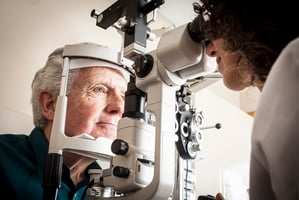Patients who undergo heart valve surgery are at a heightened risk of cognitive decline in the first...
Common Dementia Screening Tests Often Misclassify Patients, Study Finds
 |
The tests examined in the study were the Mini-Mental State Examination (MMSE), which tests memory skills including proper orientation of time and place; the Memory Impairment Screen (MIS), which tests the ability to remember words; and Animal Naming (AN), a verbal fluency test that involves naming as many animals as possible in 60 seconds.
“Our study found that all three tests often give incorrect results that may wrongly conclude that a person does or does not have dementia,” study author David Llewellyn, Ph.D., of the University of Exeter Medical School said in a press release. “Each test has a different pattern of biases, so people are more likely to be misclassified by one test than another depending on factors such as their age, education, and ethnicity.”
Llewellyn and colleagues analyzed data from older adults who participated in the Aging, Demographics, and Memory Study—a population-based longitudinal study of dementia. The participants received a three- to four-hour neuropsychological exam that included all three quick screening tests. A panel of experts then used the neuropsychological data to diagnose dementia in the participants. Of the 824 participants in the study, 291 (35.3%) were diagnosed with dementia.
The researchers found that the MMSE, MIS, and AN misclassified 21%, 16%, and 14% of the participants, respectively; 35.7% of participants were misclassified by at least one assessment, 13.4% were misclassified by at least two, and 1.7% were misclassified by all three.
The researchers identified multiple patient characteristics that contributed to misclassifying a patient with dementia, though most were specific to one or two tests. For example, African Americans were more likely to be mischaracterized by the MMSE, and older people and those with depression were more likely to be mischaracterized by the MIS. People with less education and those with heart problems were more likely to be misclassified by both the MMSE and AN. Only one factor was associated with misclassification in all three assessments, and that was the absence of a report from an outside observer that the participant was having more difficulty with memory or thinking than in the past.
“Knowledge of factors which predict misclassification … may improve clinical decision making by enhancing the selection and interpretation of assessments,” Llewellyn and colleagues concluded. “If an assessment is known to produce biased results for a given patient group, an alternative and more appropriate assessment can be selected.”
To read more about this topic, see the Psychiatric News article “Retinal Thickness May Be a Cognitive Biomarker.”
(Image: iStock/stevecoleimages)
APA will be closed on Wednesday, December 5, along with all federal agencies and executive offices, to honor and remember President George H.W. Bush.






